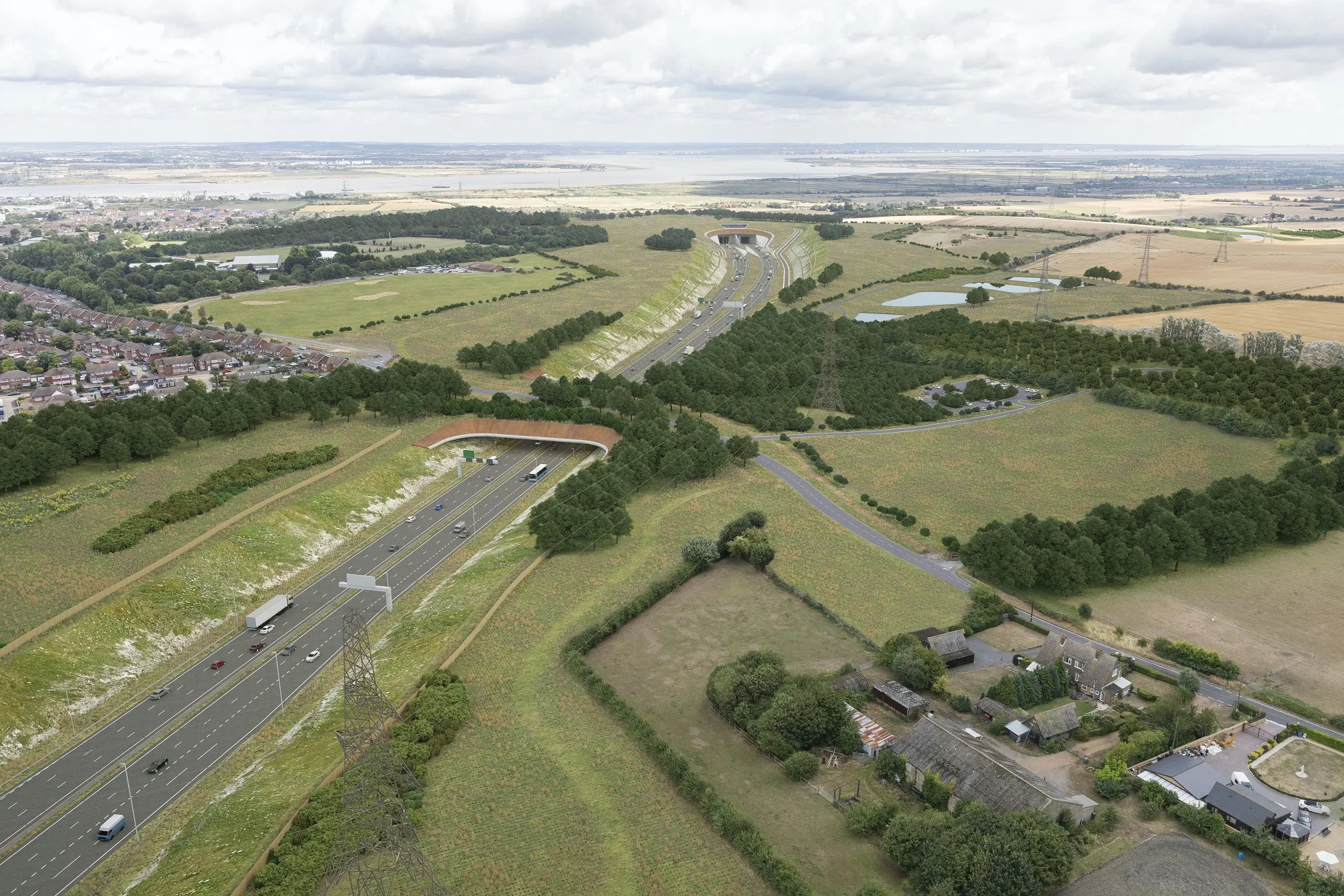Five routes have been shortlisted for the Trans-Pennine tunnel – the most ambitious road scheme undertaken in the UK in more than five decades.
The Trans-Pennine tunnel study was launched by the government in autumn 2015, one of a number of studies aimed at addressing some of the biggest challenges facing the road network in the UK. The latest interim study shows the continued strong case for the tunnel which could provide safer, faster and more reliable journeys for motorists.
All five routes join th
August 19, 2016
Read time: 3 mins
Five routes have been shortlisted for the Trans-Pennine tunnel – the most ambitious road scheme undertaken in the UK in more than five decades.
The Trans-Pennine tunnel study was launched by the government in autumn 2015, one of a number of studies aimed at addressing some of the biggest challenges facing the road network in the UK. The latest interim study shows the continued strong case for the tunnel which could provide safer, faster and more reliable journeys for motorists.
All five routes join the M60 east of Manchester to the M1 north of Sheffield, with four options starting at the M67, and will see journeys cut by 30 minutes.
The tunnel could provide an economic boost to the two cities as well as the surrounding area. The link would help protect the environment by reducing traffic through the Peak District National Park, as well as support the government’s plan to build a Northern Powerhouse.
Intelligent transport systems will be used to provide monitoring systems, including incident detection systems to identify stopped vehicles on the approaches to, and inside, the tunnel, as well as CCTV systems to monitor activities on a stopped vehicle or an incident.
The new study reveals that driver behaviour is a key factor influencing the use of a long road tunnel. The government has undertaken an initial review of driver behaviour and perceptions when using tunnels and will carry out further research to help assess the impact of driver behaviour on a potential tunnel under the Pennines, for example by developing simulators to test driver responses.
The study cites research by Scandinavian research organisation SINTEF prior to construction of the Lærdal Tunnel in Norway which found the use of cavern spaces is one of the most effective ways to relieve travellers' fears and that the colours, lighting and patterns used in the tunnel help to mitigate the effects of claustrophobia, disorientation and tiredness. Similar solutions have been adopted in the Zhongnanshan Tunnel in China. Other options include using appropriate lane width, ventilation, tunnel width and curvature, and separation of carriageways.
The report recommends that the design considerations include a UK-based research project on driver behaviour in a long tunnel. Initial discussions have already been held with a number of potential providers, including Transport Research Laboratory.
Transport Minister John Hayes said: “I want people in the north of England to benefit from quicker, more reliable journeys. Today’s study brings us a step closer to building a Trans-Pennine roads tunnel – it would be the most ambitious project since the construction of the first motorways 50 years ago.”
The Trans-Pennine tunnel study was launched by the government in autumn 2015, one of a number of studies aimed at addressing some of the biggest challenges facing the road network in the UK. The latest interim study shows the continued strong case for the tunnel which could provide safer, faster and more reliable journeys for motorists.
All five routes join the M60 east of Manchester to the M1 north of Sheffield, with four options starting at the M67, and will see journeys cut by 30 minutes.
The tunnel could provide an economic boost to the two cities as well as the surrounding area. The link would help protect the environment by reducing traffic through the Peak District National Park, as well as support the government’s plan to build a Northern Powerhouse.
Intelligent transport systems will be used to provide monitoring systems, including incident detection systems to identify stopped vehicles on the approaches to, and inside, the tunnel, as well as CCTV systems to monitor activities on a stopped vehicle or an incident.
The new study reveals that driver behaviour is a key factor influencing the use of a long road tunnel. The government has undertaken an initial review of driver behaviour and perceptions when using tunnels and will carry out further research to help assess the impact of driver behaviour on a potential tunnel under the Pennines, for example by developing simulators to test driver responses.
The study cites research by Scandinavian research organisation SINTEF prior to construction of the Lærdal Tunnel in Norway which found the use of cavern spaces is one of the most effective ways to relieve travellers' fears and that the colours, lighting and patterns used in the tunnel help to mitigate the effects of claustrophobia, disorientation and tiredness. Similar solutions have been adopted in the Zhongnanshan Tunnel in China. Other options include using appropriate lane width, ventilation, tunnel width and curvature, and separation of carriageways.
The report recommends that the design considerations include a UK-based research project on driver behaviour in a long tunnel. Initial discussions have already been held with a number of potential providers, including Transport Research Laboratory.
Transport Minister John Hayes said: “I want people in the north of England to benefit from quicker, more reliable journeys. Today’s study brings us a step closer to building a Trans-Pennine roads tunnel – it would be the most ambitious project since the construction of the first motorways 50 years ago.”







